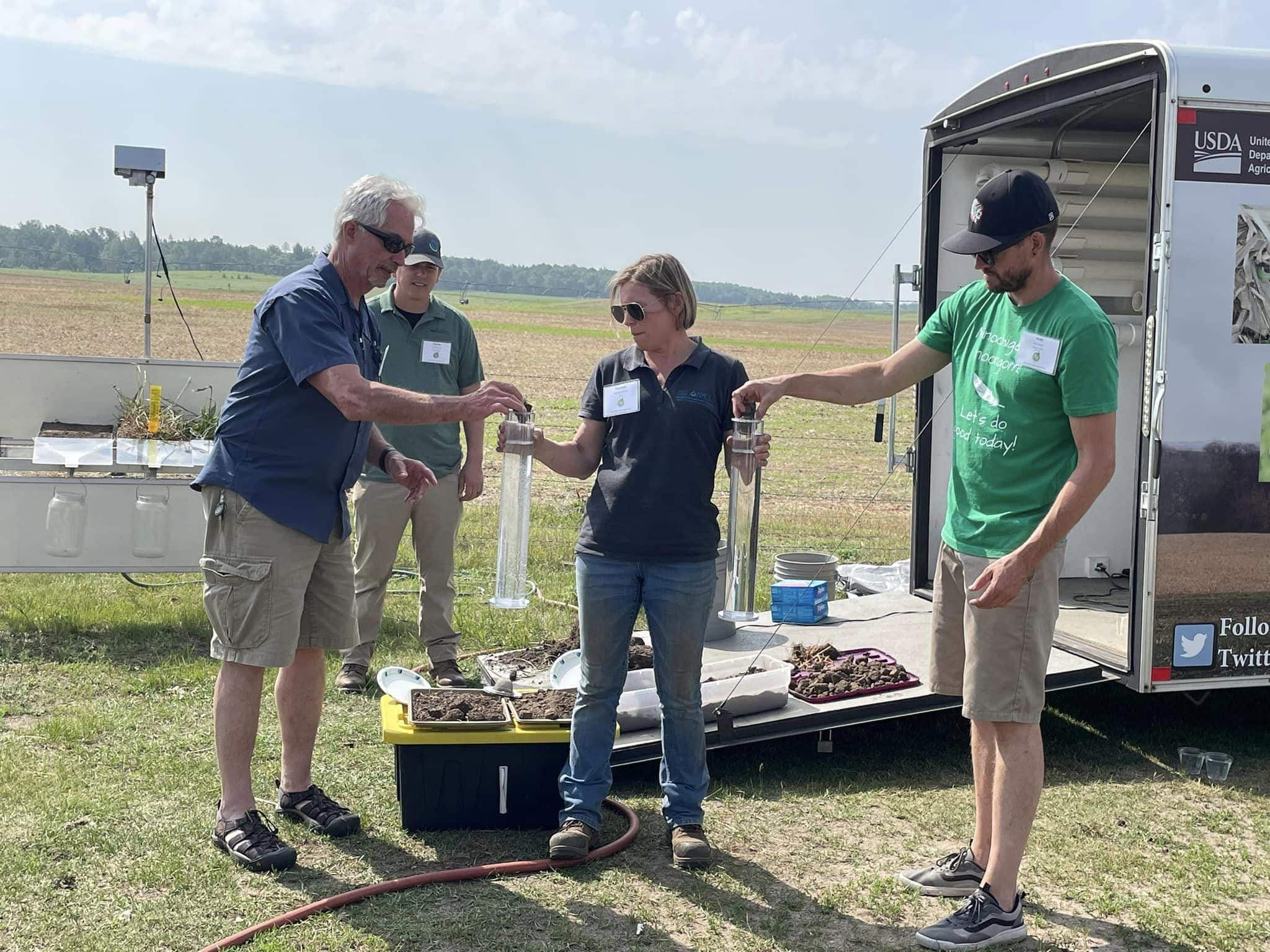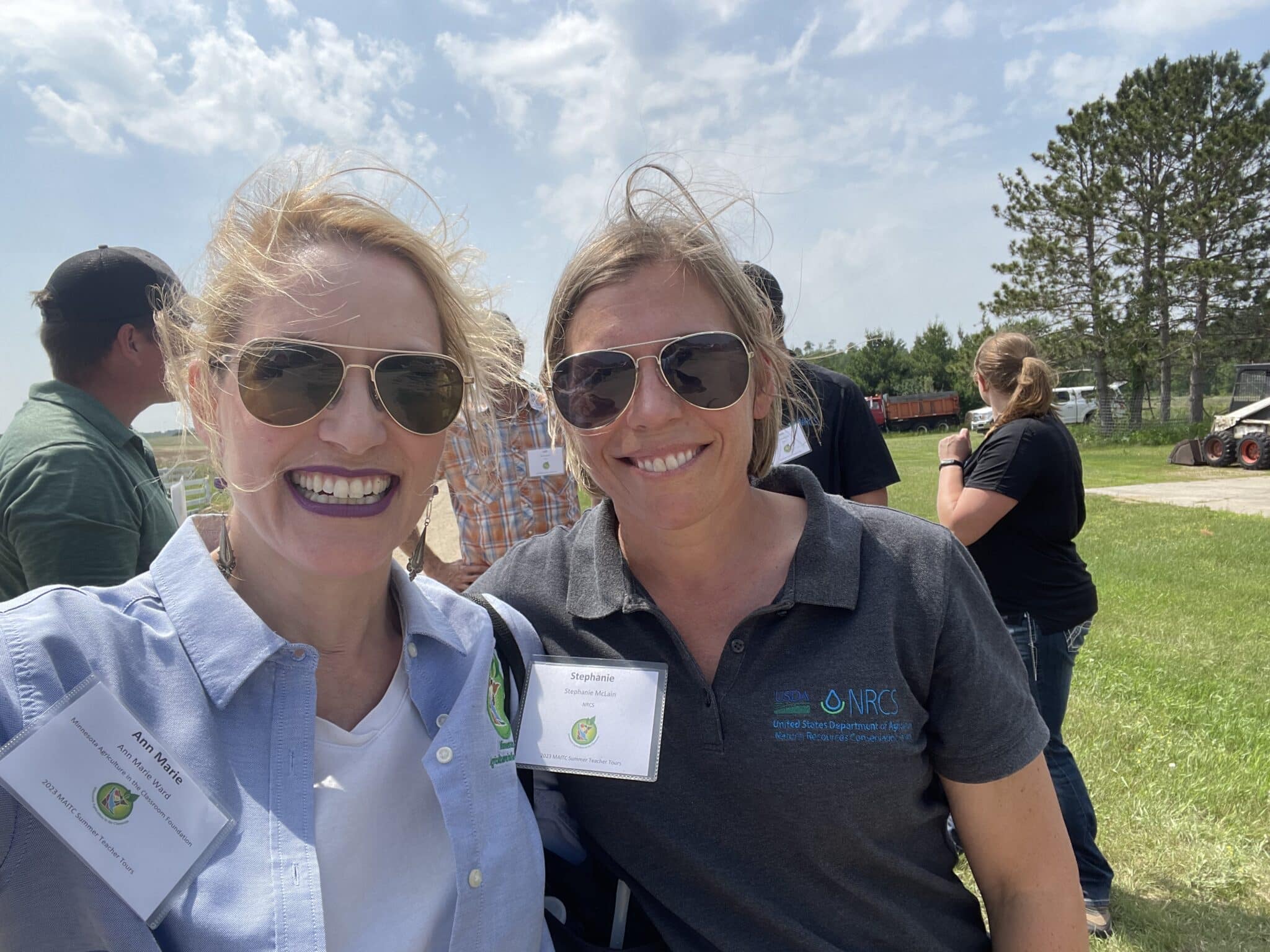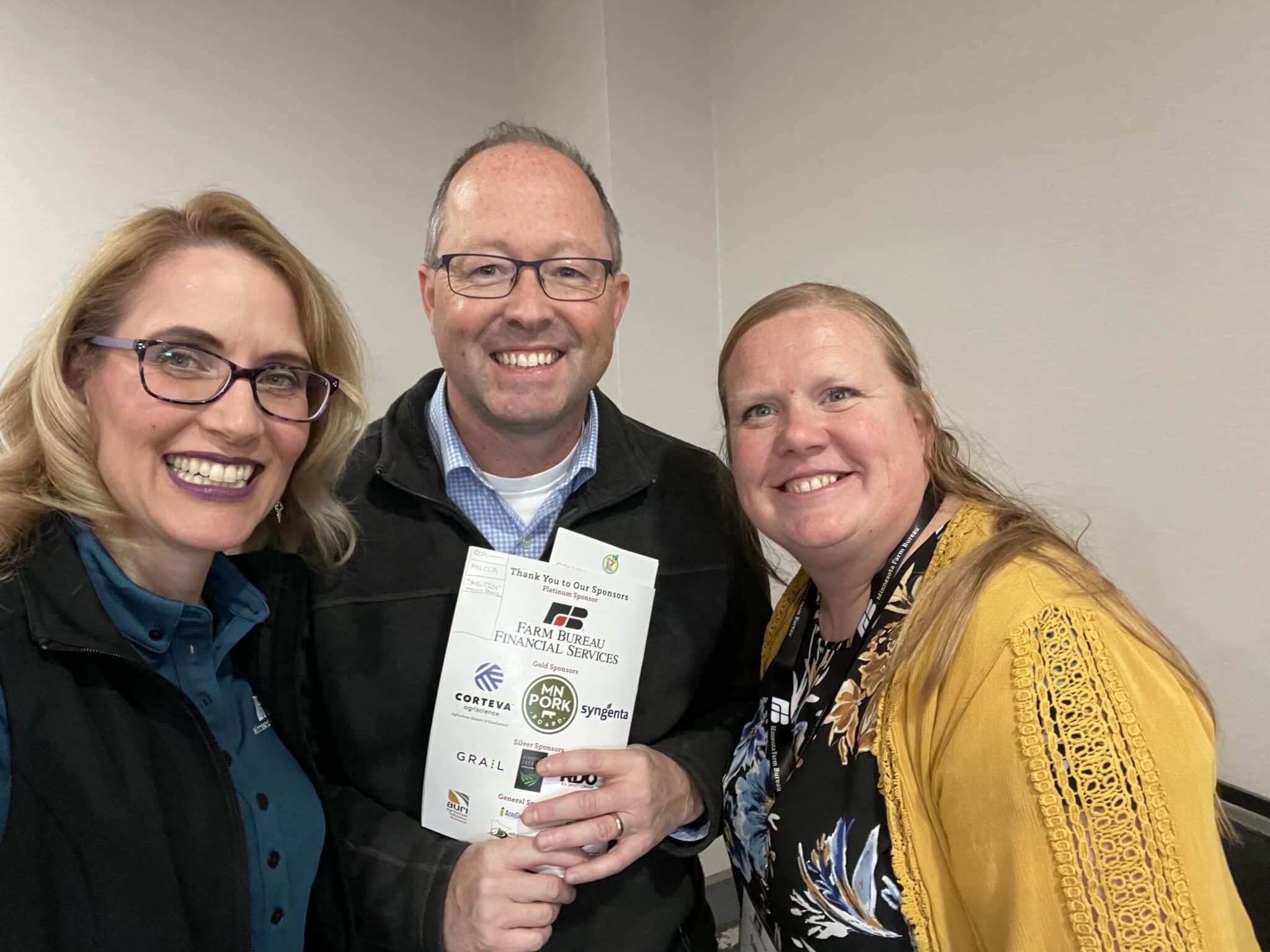Our investors make it possible for Minnesota Agriculture in the Classroom to make the impact that it does. This Investor Spotlight is designed to support and lift up our partners in agricultural literacy.
The Impact of Gifts
Natural Resources Conservation Service (NRCS) has become a new partner of Minnesota Agriculture in the Classroom Foundation that we are excited to share. In this short time together, we are already excited for the many opportunities the future has in store. NRCS is a proud Generations Club sponsor. In addition to their monetary contributions, they have provided MAITC with personnel volunteer hours as well as with a highlight of the rainfall simulator at the It’s a Mystery Teacher Tour in summer of 2023.

Why Natural Resource Conservation Service (NRCS) Supports the MN Ag in the Classroom Mission
Molly Meh, Minnesota Assistant State Conservationist - Partnerships and Operations of United States Department of Agriculture - Natural Resource Conservation Service (NRCS) shared why they are excited to support MAITC Foundation, “I was thinking on my drive today about partners and what makes a good partnership. We share some core values. NRCS, the Natural Resource Conservation Service, supports farmers and ranchers to take care of their land. Healthy farmland is healthy for everyone. It keeps the soil on the ground. It keeps our waters clean. It produces healthy food. Hopefully while allowing farmers to make a living. We all want that.
So NRCS supports Minnesota Agriculture in the Classroom for several reasons. I am going to give you three. Some of these are altruistic and some of these are self serving. First, NRCS recognizes the Ag in the Classroom’s role teaching whole communities both teachers and students about agriculture. Minnesota is in the top five states in America for ag production. But many people outside of our ag circle don’t know or don’t give a thought to the impact that farming has on their daily lives. We see Minnesota Agriculture in the Classroom as gilding the world and urban communities to understand and care about agriculture. So Minnesota commends Ag in the Classroom. It is in your mission to have an agricultural literate society. I hadn’t heard that phrase before, that phrase really grabbed my attention. We want that also.

Second, NRCS doesn’t just want people to understand agriculture from the big picture and the products that come out of it. But we want people who want to work in agriculture. Frankly, there’s not enough young people out there who know, care and are paying attention to agriculture. We need them to come work for us. So we are reaching out to you to help us support this in the long term and to come work for the Natural Resource Conservation Service. If you have a young person out there that wants to stay in agriculture, you can send them to us and we can help them stay in ag and support the agricultural community.
Finally, like most of us on this call, we like to eat, we enjoy clean water, we like clean air. We like the products that come out of agriculture. I was thinking about this; the lotions, the crayons, the paper, the wood, and all the stuff we utilize all the time. We want society to know about the importance of agriculture and we think here at the Natural Resource Conservation Service that it’s Minnesota Ag in the Classroom that can make that happen.
You're a great partner. We have common values and common goals. We are incredibly glad to get to be a part of you and we listen to you. With all the great things you are doing, we are on board and behind you all the way. Thank you for letting us be a part of what you do.”

Why the MN Ag in the Classroom Foundation Executive Director is Excited About This Partnership
Ann Marie Ward, Minnesota Agriculture in the Classroom, Inc. Foundation Executive Director, stated, “We have had an opportunity to cultivate our future in our first year of partnership with NRCS. I actually met Troy Daniell, State Conservationist of Minnesota NRCS, standing at a headgate on a Cattlemen's Tour so you just never know where opportunities are going to knock. Through all of this year, I think we have continued to learn more about each other, about our organizations, about our missions and the different ways we can work together.”
